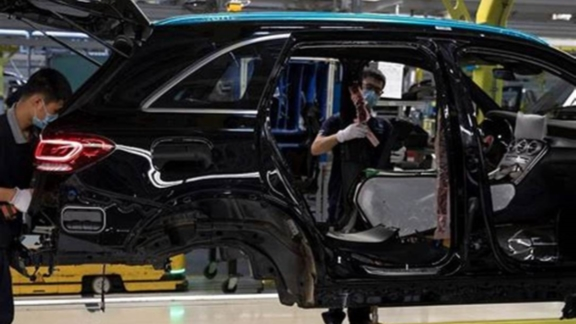BEIJING, March 24 (Xinhua) — With China’s optimized epidemic prevention and control measures boosting social mobility and international exchanges, many foreign-funded firms in China made a great start in 2023, with their executives showing confidence in the country’s strong economic recovery.
In its government work report adopted earlier this month, the Chinese government unveiled its 2023 economic growth target of around 5 percent, faster than the 3 percent growth recorded in 2022.
Despite the impact of the pandemic, Beijing Benz Automotive Co., Ltd. (BBAC), a joint venture of Mercedes-Benz and BAIC Group, was able to achieve its targets in 2022, producing more than 600,000 vehicles last year.
The company has returned to a completely normal operations environment, making a “great start” in 2023, said Arno van der Merwe, CEO and president of BBAC. “We are looking forward to a very strong year operationally.”
To address the increasing needs of the giant new energy vehicle market in China, the company has made transitions in its assembly lines, and is now able to shift production flexibly for fuel-powered, hybrid and electric cars based on market demand.
Between its establishment in 2005 and 2022, BBAC produced more than 4 million vehicles in total, with the 5-million mark due to be reached very soon this year, according to van der Merwe.
Also in Beijing, the German compressor technology giant Bitzer decided to invest another 300 million yuan (about 44 million U.S. dollars) in its factory in the Beijing Economic-Technological Development Area this year.
Part of the investment will be spent on a 4,800-square-meter building for the research and development (R&D) department, with the foundation-laying ceremony scheduled in April.
“We have brought in some equipment, so we desperately need the building as soon as possible,” said Karl Heinz Meister, vice president of the Bitzer Asia Pacific Area.
It is the fifth time the company has invested in its Beijing subsidiary over the past three years, with a total of 84 million yuan invested for the previous four times.
Meister said the Chinese government has emphasized high-quality development and environmental protection, so the company needs to design and put forward new environmentally-friendly products in the Chinese market.
According to the latest government work report, China will intensify its efforts to attract and utilize foreign investment. The country will expand market access, continue to open up the modern services sector, ensure national treatment for foreign-funded companies, improve services for foreign-funded companies, and facilitate the launch of landmark foreign-funded projects.
“The impact of COVID-19 is only short-term, and we are confident about the business prospects in China in the long run,” said Bill Feng, vice president of Bitzer Greater China.
Michel Doukeris, chief executive of the world’s largest brewer Anheuser-Busch InBev, described China’s booming consumption as “a big engine of economic development,” and expressed his confidence in the company’s pursuit of a more promising future in the Chinese market.
With long-term, large-scale investments of over 30 billion yuan since 1984, the brewer has optimized its value chain in China and made great progress in the construction of new breweries, facilities and warehouses, as well as establishing localized teams and talent.
“China’s economy is thriving, its communities are growing, and people are enjoying more consumption; our business needs to catch up,” said the chief executive, brimming with confidence. “We need to continue to invest.” (Video reporters: Xia Zilin, Li Dexin, Ma Xiaodong; video editors: Liang Wanshan, Li Qin, Cao Ying)

